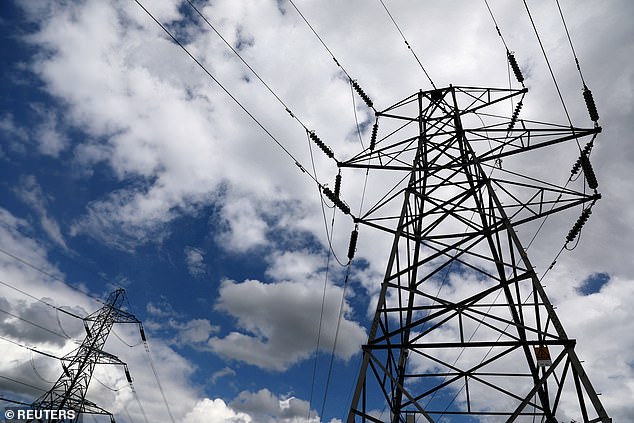By CLAIRE ELLICOTT, WHITEHALL EDITOR
Published: | Updated:
Households near new pylons could get £250 a year off their bills for the next decade as Ed Miliband seeks to win their backing.
The Energy Secretary hopes to reduce opposition and planning delays to electricity infrastructure he aims to build by 2030.
He has faced a backlash against plans to build hundreds of miles of electricity pylons across rural parts of the country.
The plans make up part of Labour’s pledge to deliver clean energy by 2030 to reduce the UK’s reliance on other countries for its fuel.
The cost of compensating families living nearby will be picked up by bill payers, with a small increase in the average annual bill across the country.
Under the plans, households within 500 metres of new or upgraded pylons will get discounts on their bills of up to £2,500 over 10 years, equivalent to £250 a year.
The compensation scheme is expected to be in place from 2026.
Mr Miliband told the BBC: ‘At the moment, we’re having to switch off offshore wind farms because we haven’t got the transmission infrastructure.

‘So everybody benefits from this. Everybody gets lower bills, and those who live near pylons are given a recognition of what they’re doing.’
Earlier this week, Storm Floris caused wind gusts of more than 100mph.
But consumers face a £33million bill after turbines were shut down because the electricity network could not handle the excess power and gas stations had to be fired up.
Sam Richards, of the pro-growth campaign group Britain Remade, said: ‘Cash off bills alone won’t build the grid Britain urgently needs.
‘Vital projects are being delayed by a broken planning system. We can’t enjoy an abundance of clean power, cut bills for households and businesses, or secure our energy future without new pylons and energy infrastructure.
‘That means removing planning barriers, reforming the grid queue, and speeding up approvals.’
Jackie Copley, campaign lead at CPRE, the countryside charity, said: ‘Investing in local green spaces or improving community infrastructure would be a better way to spend this money.
‘Paying individuals comes with many problems, including questions of fairness, likely legal challenges, and the fact that it’s impossible to put a price on the loss of a landscape.’








